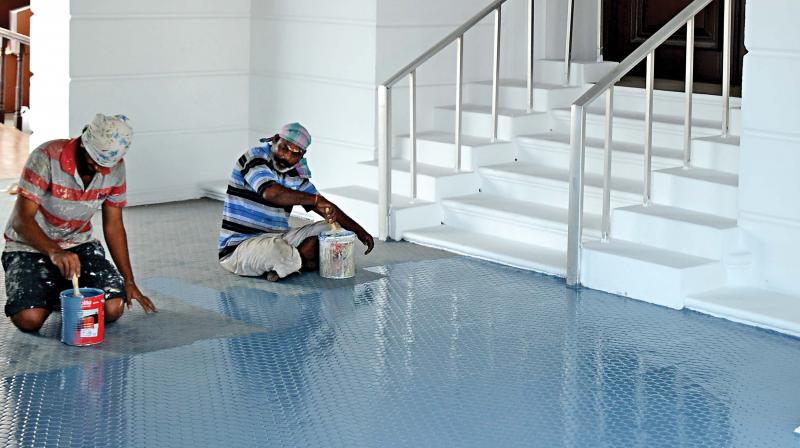Deficit, no new tax budget likely today
First budget to be presented after EPS-OPS merger.

Chennai: All eyes are on the first budget of the Tamil Nadu government after the merger of the AIADMK factions led by Chief Minister Edappadi K. Palaniswami and Deputy Chief Minister O. Panneerselvam.
The ruling government which is in a severe financial crisis due to the implementation of the 7th pay commission and the GST implementation by the Centre is to present a deficit budget for the fifth straight year, admitted highly placed official sources at the secretariat.
Implementation of the pay commission, inclusion of state revenue heads under GST, closure of Tasmac shops and the continuation of popular schemes like Amma free scooter, free live stock distribution, free laptop distribution are the major schemes that will continue to drain the state resources by 30 to 40 per cent. However, indications are that there are no new taxes this time and the budget session is to conclude by 1 pm. The Assembly will have a special session to discuss the Cauvery issue in the noon and budget discussions are to be scheduled over the next few days, sources said.
The increase in transport bus fare price, increase in tax components related to the entertainment industry, registration and utility charges will push the revenue index for the state and the revenue-earning projection will be around '1.7 lakh crore and the deficit will be around '17,000 crore, higher than that of last year's deficit of '15,930 crore, sources said.
According to revenue department sources the annual deficit of Tamil Nadu has been growing by 20 percent in the past four years and the revenue income through liquor, excise, registration and motor vehicles tax has been stagnant.
Meanwhile the secretariat is decked up for the budget and on the eve of the budget, officers attached to the office of the CM and deputy chief minister were seen working overtime with fiscal records to be tabled by Panneerselvam who also holds the finance portfolio.
The inside information is that there are plans to unveil new infrastructure projects and increase subsidy cover for social welfare schemes related to women and farmers.

